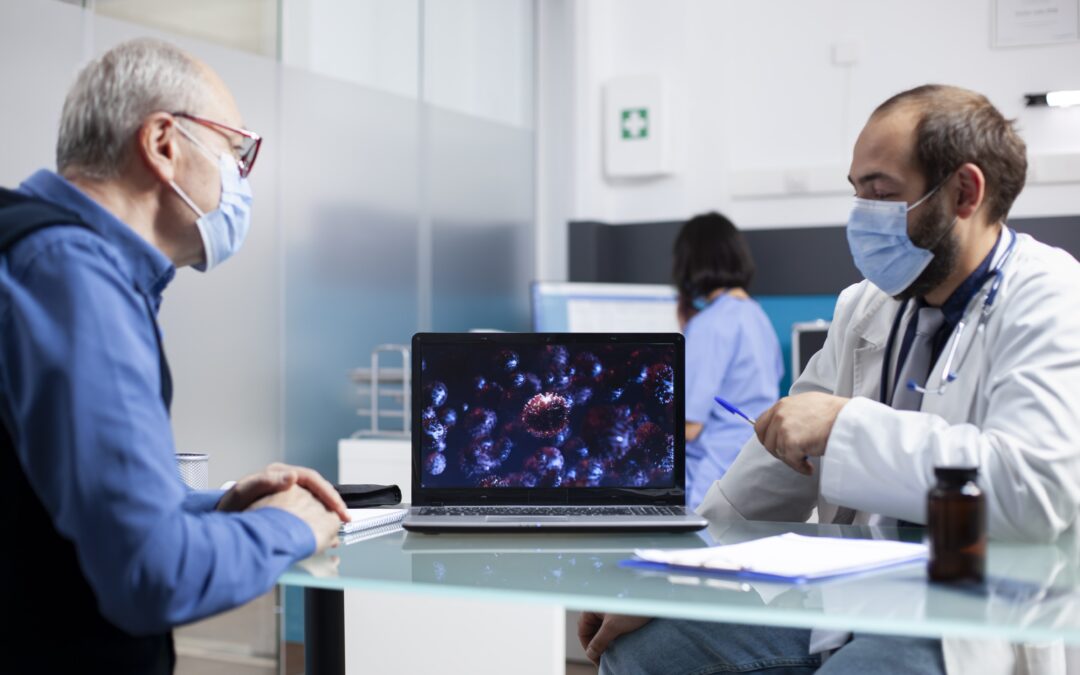Introduction
Artificial Intelligence (AI) is reshaping healthcare in ways that were once unimaginable. Hospitals and research institutions are increasingly using AI to enhance diagnosis, predict diseases, and improve patient outcomes. From identifying complex patterns in medical images to assisting in drug development, AI technologies are helping healthcare providers make faster, more precise, and data-driven decisions.
The rapid growth of AI in healthcare is not just about automation it’s about intelligence that augments human expertise. The integration of AI systems across medical practices allows doctors to focus more on patients while reducing manual tasks and minimizing errors.
In this article, we’ll explore the key AI technology types used in healthcare, their real-world applications, and their growing importance in creating a more efficient and patient-centered medical ecosystem.
1. Machine Learning: The Brain Behind Predictive Medicine
Machine Learning (ML) is one of the most powerful branches of AI and serves as the foundation for many healthcare innovations. ML systems are trained using large datasets to recognize patterns, make predictions, and continuously improve through feedback.
In medicine, ML algorithms analyze complex medical data from lab results and patient histories to genomic data to help doctors identify risks earlier and recommend personalized treatments.
Key Applications of Machine Learning in Healthcare:
-
Disease Prediction and Early Diagnosis: ML algorithms detect early signs of diseases like diabetes, cancer, and Alzheimer’s by spotting subtle patterns that are often invisible to the human eye.
-
Medical Imaging: Deep learning models enhance radiology by interpreting X-rays, MRIs, and CT scans with high accuracy.
-
Drug Discovery: Machine learning accelerates the identification of promising compounds, shortening drug development timelines.
-
Patient Monitoring: AI-powered monitoring tools predict deterioration in patients with chronic conditions, enabling early intervention.
Machine learning continues to advance as it learns from new data, creating more personalized and proactive healthcare systems.
2. Natural Language Processing (NLP): Making Sense of Medical Data
Healthcare generates an enormous amount of unstructured text data clinical notes, lab reports, and patient records. This data is rich in insights but difficult to analyze manually. Natural Language Processing (NLP) allows AI to read, interpret, and summarize this information effectively.
NLP tools can extract critical insights from medical documents, identify patterns in patient histories, and even detect early signs of disease through linguistic analysis.
The rise of Healthcare AI Types like NLP demonstrates how language-based intelligence is changing healthcare communication and record-keeping.
Applications of NLP in Medicine:
-
Clinical Documentation: NLP automates transcription, coding, and summarization of physician notes, saving valuable time.
-
Voice-Activated Systems: Doctors use speech-to-text tools for hands-free record updates during patient consultations.
-
Medical Research: NLP scans medical journals and research papers to extract relevant data, helping researchers stay up to date.
-
Sentiment and Symptom Analysis: AI tools can analyze patient feedback or online reviews to assess healthcare quality and patient satisfaction.
By converting unstructured data into meaningful insights, NLP ensures that critical information is never lost in paperwork and supports more informed clinical decisions.
3. Robotics and Automation: Precision and Efficiency in Action
AI-driven robotics and automation have made significant contributions to healthcare. Robots are now capable of assisting surgeons, administering treatments, and supporting rehabilitation therapy all with precision and consistency.
Applications of Robotics in Healthcare:
-
Surgical Robots: Tools like the da Vinci Surgical System enable minimally invasive surgeries with smaller incisions and quicker recovery times.
-
Rehabilitation Robots: These devices help patients regain movement and strength after injury or surgery.
-
Pharmacy Automation: Robots assist in medication dispensing and inventory management, reducing human error.
-
Patient Assistance Robots: Hospitals use robots to deliver supplies, disinfect rooms, and even assist elderly patients.
Automation also plays a crucial role in hospital operations handling administrative tasks like scheduling, billing, and data entry. By reducing repetitive work, AI allows healthcare professionals to spend more time focusing on patient care.
4. Computer Vision: Seeing Beyond Human Capability
Computer Vision, a subset of AI, enables machines to “see” and interpret visual information. In healthcare, it’s used to analyze medical imagery and detect diseases that might go unnoticed by human observers.
Applications of Computer Vision in Healthcare:
-
Medical Imaging Diagnostics: Identifies tumors, fractures, or infections in X-rays and MRIs.
-
Dermatology Analysis: Detects skin conditions and malignancies through photo-based assessments.
-
Surgical Guidance: Assists surgeons with real-time visualization during complex procedures.
-
Remote Patient Monitoring: Analyzes live video feeds to track patient mobility and vital signs.
Computer vision’s ability to process vast amounts of visual data enhances both diagnostic speed and precision, providing critical support to radiologists and pathologists.
5. Expert Systems: AI That Thinks Like a Doctor
Expert systems simulate human expertise in specific domains. In healthcare, they’re used to offer diagnostic suggestions, recommend treatment plans, and analyze patient symptoms. These systems rely on a vast database of medical knowledge and use logical reasoning to reach conclusions.
For instance, an expert system can help a physician diagnose a rare condition by comparing symptoms against a database of previous cases. This not only saves time but also ensures that even uncommon diseases are considered.
Benefits of Expert Systems in Healthcare:
-
Consistent decision-making based on evidence.
-
Improved diagnostic accuracy for complex or rare conditions.
-
Support for physicians in remote or resource-limited areas.
6. Generative AI: The Future of Personalized Medicine
Generative AI powered by advanced models capable of creating new content has exciting potential in healthcare. These models can simulate molecular structures, predict protein folding, and generate personalized treatment recommendations based on individual genetic data.
Emerging Uses Include:
-
Drug Discovery: Generating new compounds for testing.
-
Medical Education: Simulating patient scenarios for training.
-
Health Communication: Creating clear, patient-friendly summaries of medical information.
Generative AI is opening a new frontier in medicine, where treatments can be tailored precisely to each patient’s biology and needs.
Challenges in Implementing AI in Healthcare
Despite its benefits, the adoption of AI technologies in healthcare faces some challenges:
-
Data Privacy: Protecting sensitive patient data remains a top concern.
-
Integration: Many hospitals still lack systems that can seamlessly integrate AI tools.
-
Bias and Accuracy: AI models are only as good as the data they’re trained on. Poor-quality data can lead to inaccurate predictions.
-
Regulatory Issues: AI-based medical tools must comply with strict regulations to ensure patient safety.
To overcome these obstacles, healthcare organizations must invest in ethical AI development, robust data governance, and continuous model improvement.
Conclusion
AI has become an indispensable ally in modern healthcare. From machine learning and natural language processing to robotics and computer vision, each AI technology type plays a vital role in improving patient outcomes, reducing costs, and advancing medical innovation.
As the healthcare industry continues to evolve, integrating AI will not just be an option it will be a necessity. The collaboration between human expertise and intelligent systems promises a future where medicine is more accurate, predictive, and personalized than ever before.



